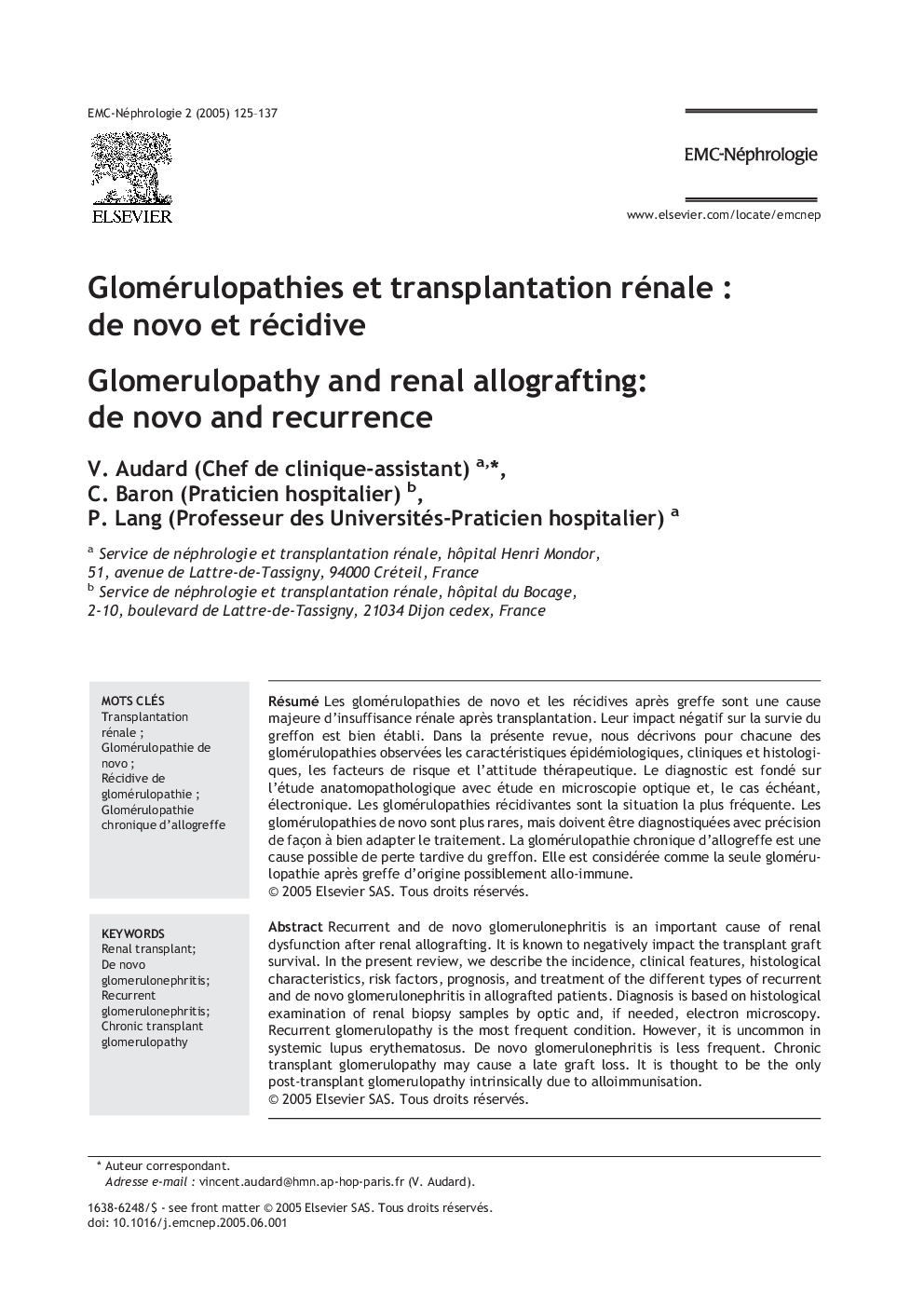| Article ID | Journal | Published Year | Pages | File Type |
|---|---|---|---|---|
| 9307888 | EMC - Néphrologie | 2005 | 13 Pages |
Abstract
Recurrent and de novo glomerulonephritis is an important cause of renal dysfunction after renal allografting. It is known to negatively impact the transplant graft survival. In the present review, we describe the incidence, clinical features, histological characteristics, risk factors, prognosis, and treatment of the different types of recurrent and de novo glomerulonephritis in allografted patients. Diagnosis is based on histological examination of renal biopsy samples by optic and, if needed, electron microscopy. Recurrent glomerulopathy is the most frequent condition. However, it is uncommon in systemic lupus erythematosus. De novo glomerulonephritis is less frequent. Chronic transplant glomerulopathy may cause a late graft loss. It is thought to be the only post-transplant glomerulopathy intrinsically due to alloimmunisation.
Related Topics
Health Sciences
Medicine and Dentistry
Nephrology
Authors
V. (Chef de clinique-assistant), C. (Praticien hospitalier), P. (Professeur des Universités-Praticien hospitalier),
